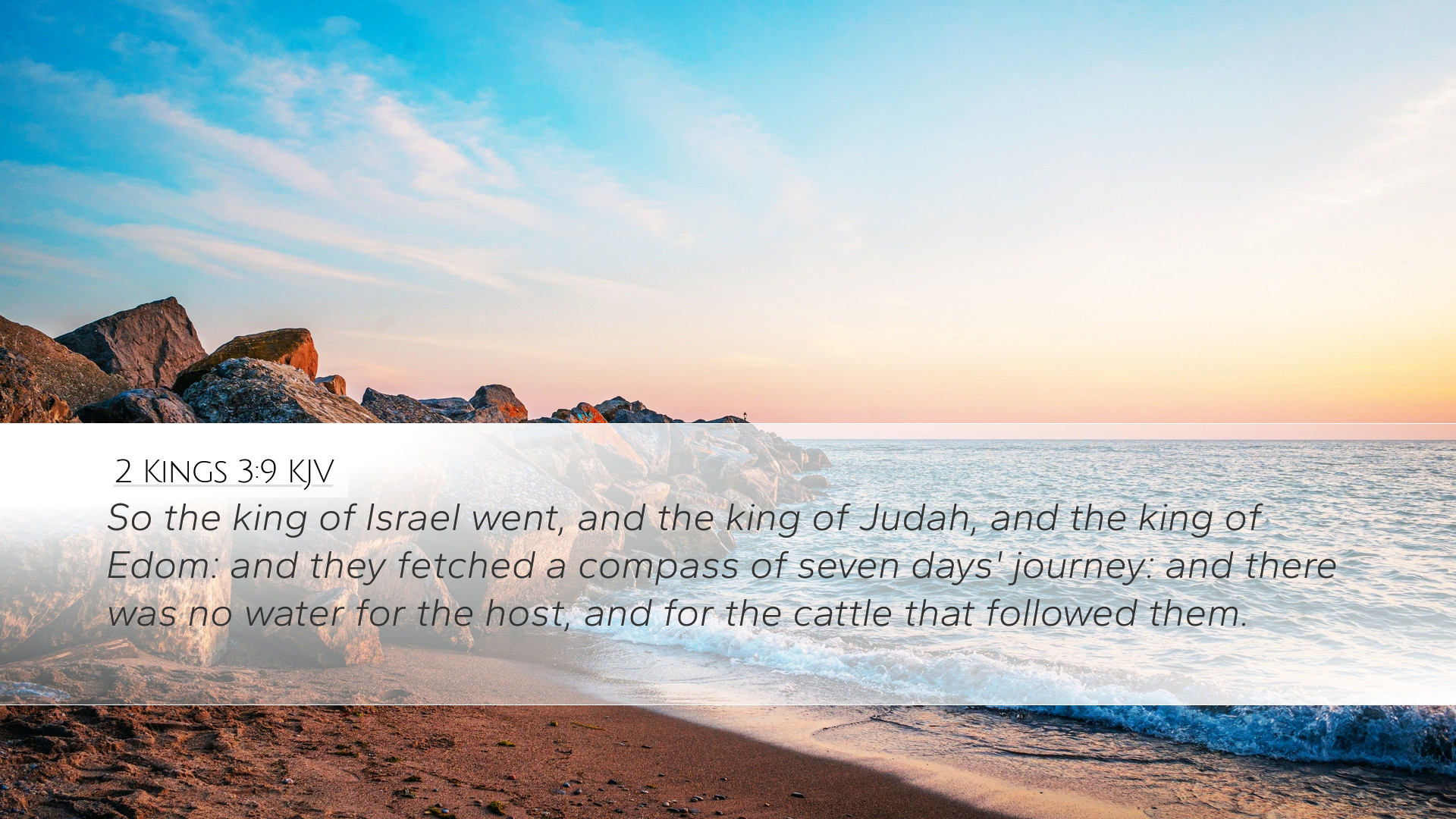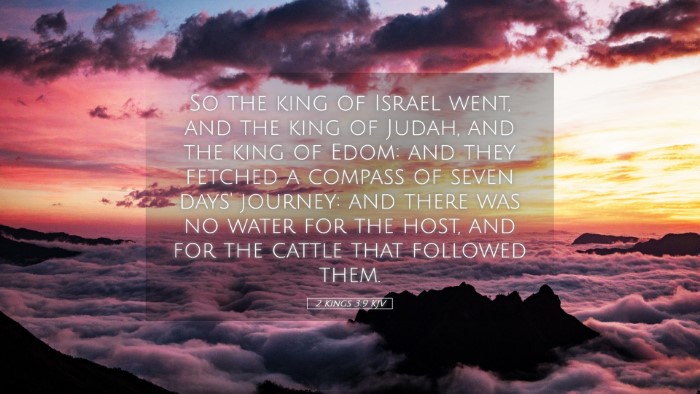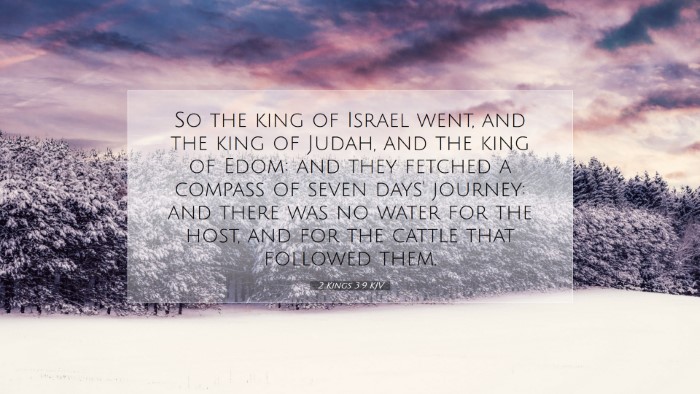Commentary on 2 Kings 3:9
Verse Context: 2 Kings 3:9 states: "So the king of Israel went, and the king of Judah, and the king of Edom: and they fetched a compass of seven days' journey; and there was no water for the host, and for the cattle that followed them." This verse sets the stage for a moment of crisis in the narrative where three kings unite for war, but face dire circumstances in the wilderness.
Historical Background
Geopolitical Relations: The alliance among the three kings—Israel, Judah, and Edom—reflects the complexities of ancient Near Eastern politics. The historical context shows how political alliances were often formed out of necessity, revealing both the fragility and the interdependence of these nations.
Moabite Rebellion: The narrative centers around the rebellion of Moab against Israel, which prompts this coalition. The rebellion illustrates the tension and conflict prevalent in the region, often encouraged by the failures of leadership and prophetic warnings.
Commentary Insights
Matthew Henry: Henry highlights the significance of the desperate situation the alliance faces after seven days of travel without water. It portrays the futility of their military readiness when faced with a fundamental need. Henry emphasizes how such a scenario serves as a metaphor for spiritual thirst, reminding readers that human efforts are insufficient without divine assistance.
Albert Barnes: According to Barnes, the verse underscores the logistical challenges of warfare, particularly in the arid environment they faced. He draws attention to the physical thirst of the armies, which reflects the spiritual thirst of mankind—a theme that resonates throughout Scripture. Barnes encourages readers to recognize that in times of depletion and desperation, comfort and sustenance must ultimately come from God.
Adam Clarke: Clarke provides a detailed examination of the geographical and strategic implications of the kings' journey. He notes that the choice of route may have been influenced by their need to avoid Moabite territories. Furthermore, Clarke engages in a discussion of the symbolic meaning of water as a representation of life and sustenance, suggesting that the absence of water foreshadows greater challenges ahead, calling for divine intervention.
Theological Implications
This verse invites deep reflection on the theme of reliance on God amidst crisis. It serves as a reminder that human efforts are often met with limitations, and emphasizes the need for divine providence.
- Divine Dependency: The kings' predicament illustrates humanity's dependency on God for both spiritual and physical sustenance.
- Seeking God in Crisis: The lack of water leads to recognition of need, prompting prayers and seeking of God, which is essential in times of trouble.
- Community and Alliance: The passage reflects the importance of communal relationships in the face of adversity, aligning with New Testament themes of unity in Christ.
Applications for Modern Readers
For pastors, students, and theologians, this verse resonates deeply with contemporary themes of leadership and the significance of recognizing our limitations. The failure to find water can serve as a call to examine how we pursue solutions and whether we are including God in our strategies.
- Prayer in Preparation: The necessity of prayer and seeking God as we embark on journeys—literal or metaphorical.
- Interdependency: A call to unity among believers, as seen in the alliance of the kings, emphasizing collaborative faith journeys.
- Hope amid Despair: Encouragement that even when resources seem depleted, God remains faithful to provide for our needs.
Conclusion
2 Kings 3:9 encapsulates a moment of crisis that leads to profound insights about human limitations and the necessity of divine intervention. The reflections from prominent commentators provide valuable perspectives on how this passage can inform our understanding of God’s providence, the importance of seeking Him in times of need, and the call to unity among believers. Ultimately, this verse encourages a deeper faith reliance, reminding us that in our journeys, both physical and spiritual, we must look beyond our own capabilities to the one who can provide all that sustains us.


